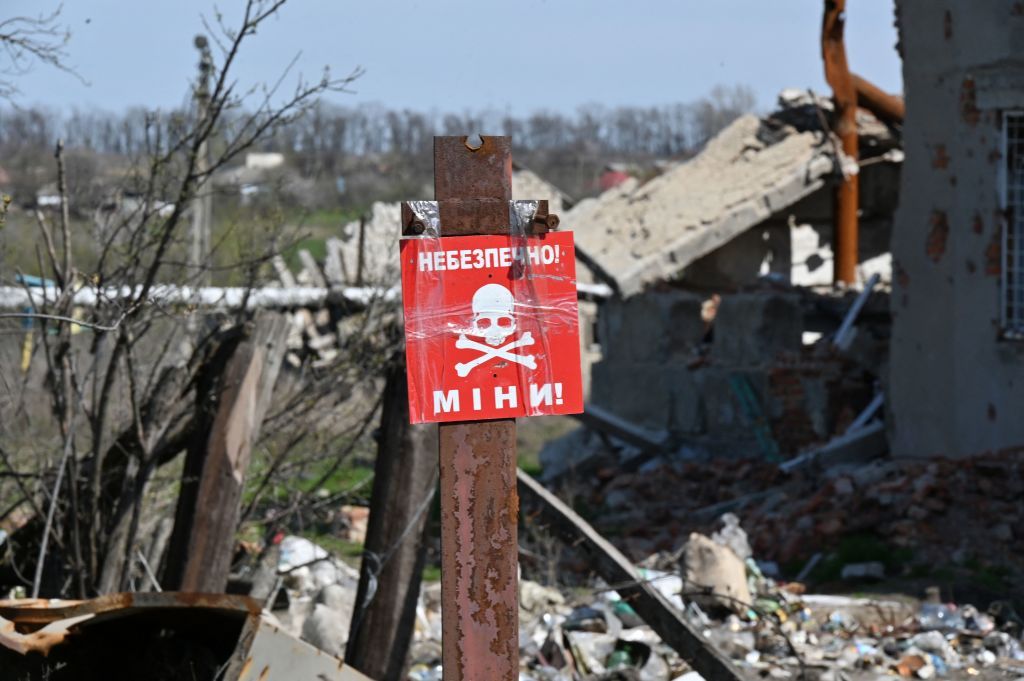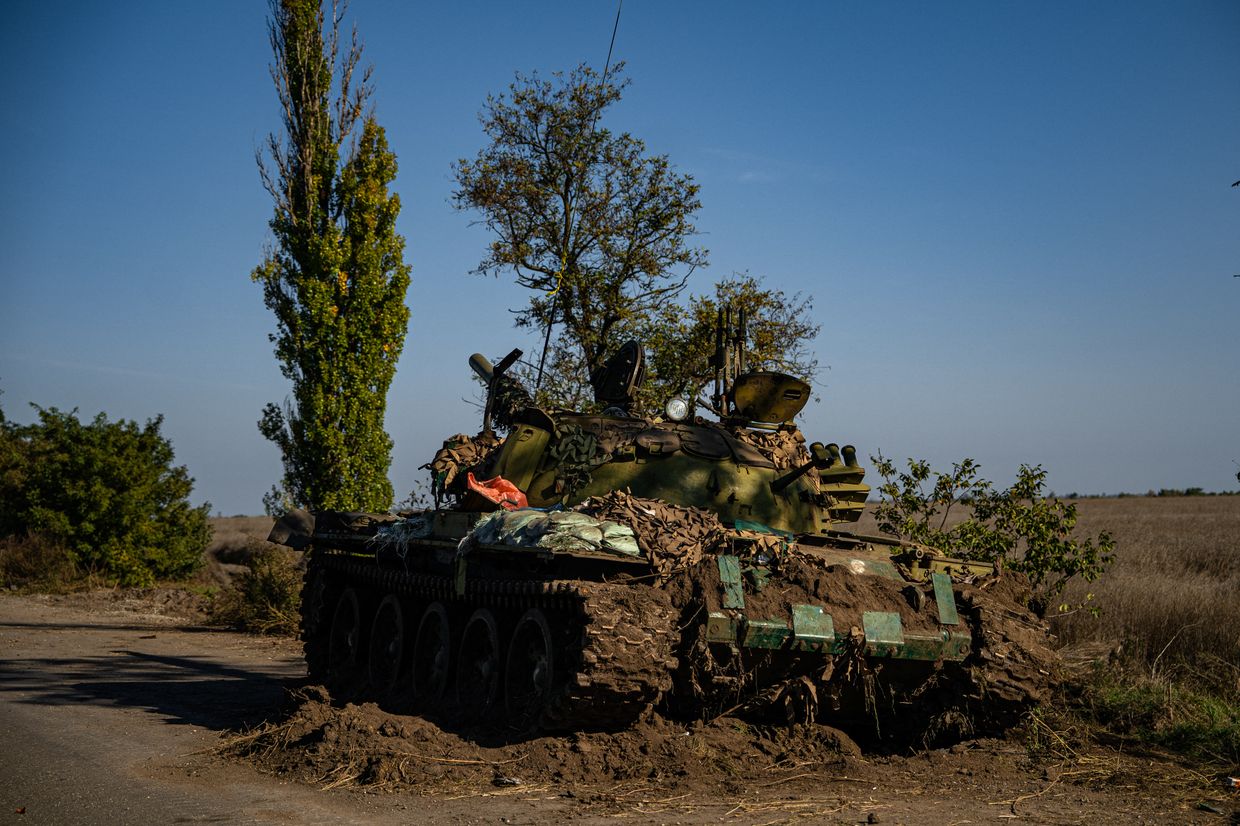Thailand Suspends Trump-Backed Peace Talks With Cambodia

© Chalinee Thirasupa/Reuters

© Chalinee Thirasupa/Reuters

A Ukrainian soldier severely wounded in a Russian-occupied town spent more than a month waiting for rescue, according to Ukraine's First Separate Medical Battalion. After six failed attempts and the loss of six ground drones, the seventh mission — carried out using a damaged land-based robotic system — finally brought him home alive. The battalion shared footage showing highlights of the operation, but did not specify the front sector or even the oblast where the mission took place.
According to the battalion, the soldier sustained a serious injury 33 days before the operation, with only a tourniquet keeping him alive. During that time, six rescue attempts failed. All used NRK—"ground robotic systems"—and all were either destroyed or rendered inoperable. Four of the six destroyed machines belonged to adjacent units.

Despite the repeated setbacks, the seventh attempt succeeded. The evacuation covered a total of 64 km, including 37 km driven with a damaged wheel. The NRK reportedly sustained a hit from an anti-personnel mine on the way to the wounded soldier but kept moving.
On the return route, a Russian drone dropped explosives on the machine. Thanks to the armored capsule it was carrying, the soldier inside was unharmed.

The entire operation lasted 5 hours and 58 minutes, with the ground drone averaging a speed of 13 km/h and reaching a top speed of 29 km/h.
The battalion confirmed the soldier was successfully evacuated and received necessary medical care. He is currently undergoing further treatment and is not in danger.

In a closing message, First Separate Medical Battalion noted,
“If the soldier didn’t surrender — we had no right to.”
33 days wounded in a Russian-held town. Six ground drones were lost trying to reach him. The seventh one, even with a damaged wheel, survived a landmine and a Russian drone strike to bring the wounded Ukrainian soldier to safety.
— Euromaidan Press (@EuromaidanPress) November 4, 2025
Details: https://t.co/HCUEpe6uEKpic.twitter.com/pFS5t042xB

President Volodymyr Zelensky signed a decree to withdraw from the Ottawa Convention banning anti-personnel mines, a step that follows the Baltic nations and Poland's move to boost their defense as the war rages on in Ukraine.
The 1997 treaty, joined by over 160 countries, bans the use, production, stockpiling, and transfer of anti-personnel landmines in efforts to protect civilians from the scattered explosives that could still injure them long after the conflict is over.
"Russia has never been a party to this convention and uses anti-personnel mines extremely cynically," Zelensky said in justifying the decision. "And not only now, in the war against Ukraine. This is the signature style of Russian killers — to destroy life by all methods at their disposal.
Earlier in March, the Baltic states and Poland announced their intention to withdraw from the Ottawa Convention, a significant shift in defense policy that shows how countries near Ukraine are preparing for a potential war in Europe.
Anti-personnel mines are scattered across the battlefield in Ukraine, with soldiers and civilians often losing their feet or limbs due to detonations. Territories liberated by Ukraine since 2022 have been heavily covered with mines, making it extremely difficult and dangerous to clear them. Russia has used more than a dozen variants of anti-personnel mines since it launched a full-scale invasion of Ukraine in 2022, according to Human Rights Watch's June report.
In a surprise move that angered Moscow, the Biden administration in 2024 approved the provision of anti-personnel mines to Ukraine. Then Defense Secretary Lloyd Austin said it was to help Ukraine stall the Russian advances in the east as the front-line situation deteriorated.
"This is a step that the reality of war has long demanded," lawmaker Roman Kostenko, secretary of the parliament's defense committee, said in the Facebook post announcing a significant move forward in withdrawing from the major mine treaty.
Now that Zelensky signed the decree enacting the decision of the National Security and Defense Council of Ukraine, it will land on the parliament's table, Kostenko said. The dates when the decision will take effect are still unclear.
 The Kyiv IndependentKateryna Denisova
The Kyiv IndependentKateryna Denisova

Finland's parliament voted on June 19 to withdraw from the Ottawa Convention banning anti-personnel landmines, citing growing security concerns from Russia's aggressive posture and the threat it poses to the region, Reuters reported.
The vote aligns Finland with its Baltic allies, Estonia, Latvia, and Lithuania, whose parliaments have already approved similar exits from the treaty.
Defending the decision earlier this week, Finnish President Alexander Stubb said the security reality along Finland's 1,300-kilometer (800-mile) border with Russia had changed dramatically since the full-scale invasion of Ukraine, according to TVP.
"The reality in the endgame is that we have as our neighboring country an aggressive, imperialist state called Russia, which itself is not a member of the Ottawa Treaty and which itself uses landmines ruthlessly," Stubb said.
Russia has widely deployed landmines across Ukrainian territory since launching its invasion in 2022, a tactic condemned by human rights organizations and Western governments.
Finland, which joined NATO in 2023, has significantly ramped up its defense posture amid growing concern over potential Russian provocations. The country closed its border with Russia over a year ago, accusing Moscow of orchestrating a "hybrid operation" by directing asylum seekers toward Finnish territory. Helsinki claims such hybrid tactics have intensified since it joined the alliance.
The Finnish Border Guard completed the first 35 kilometers (22 miles) of a planned 200-kilometer (124-mile) fence along its eastern frontier on May 21. The move came amid growing evidence of Russian military infrastructure expansion near the Finnish border.
Finland is "closely monitoring and assessing Russia's activities and intentions," Finland's Defense Minister Antti Hakkanen told AFP on May 22.
"We have excellent capabilities to observe Russian operations. As a member of the alliance, Finland holds a strong security position."
Russia's Defense Minister Andrei Belousov said in December 2024 that Moscow must be ready for a potential conflict with NATO within the next decade. Western officials have repeatedly warned of the possibility that Moscow could target NATO members in the coming years.
 The Kyiv IndependentDmytro Basmat
The Kyiv IndependentDmytro Basmat